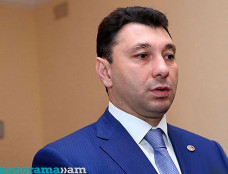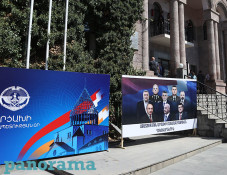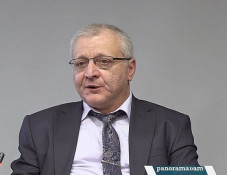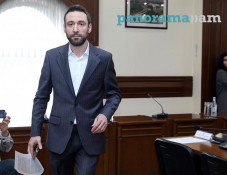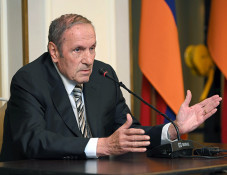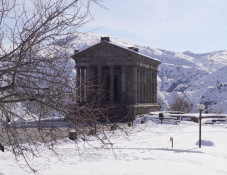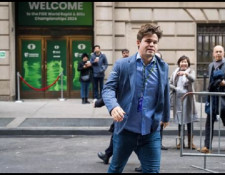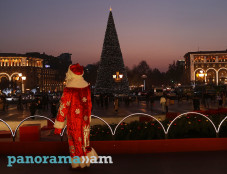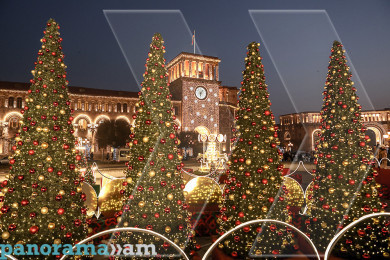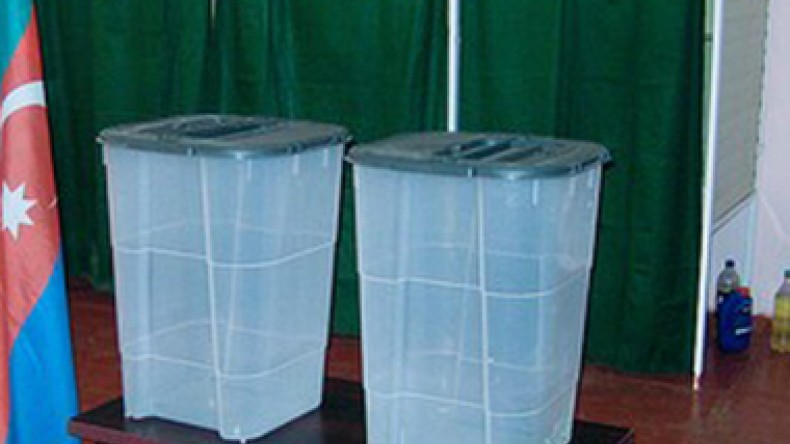
International media say right to free and fair election to be violated in Azerbaijan as always
Azerbaijan votes for a new parliament on Sunday in elections shunned by European observers for the first time since independence in 1991, Bloomberg http://www.bloomberg.com/news/articles/2015-10-29/azeris-vote-for-parliament-as-aliyev-cracks-down-amid-oil-slump writes.
President Ilham Aliyev’s New Azerbaijan Party, known as YAP, is set to retain its majority in Parliament as the main opposition parties boycott the vote amid a state crackdown on activists. Low oil prices mean Azerbaijan faces “an uncertain economic outlook, which could have unpredictable political and social consequences,” Alex Nice, an analyst at the Economist Intelligence Unit, told Bloomberg. The slowing economy prompted the government to cut public spending, he said.
Bloomberg points that the vote takes place after Aliyev purged security officials for alleged corruption. The central bank devalued the manat by almost 35 percent against the dollar in February after oil prices fell by more than half. Relations with the U.S. and the European Union are deteriorating over human rights.
If oil prices stay low, there is a high risk the central bank will have to devalue the manat again in early 2016, which will push up inflation, eat into incomes and increase pressure on a banking industry already under strain, the EIU’s Nice said.
“Aliyev faces considerable challenges,” Laurence Broers, associate fellow for Russia and Eurasia at London’s Chatham House, told Bloomberg. “Competitive party politics and independent civil society have been so de-institutionalised, the basis for effective negotiation between state and society has been significantly narrowed.”
Bloomberg further writes about the imprisoned government critics, rights defenders and journalists, including the investigative journalist Khadija Ismayilova. The list of “political prisoners in Azerbaijan goes on and on,” said Isabel Santos, the OSCE Parliamentary Assembly’s democracy and human rights chairwoman.
Azerbaijan denies having any political prisoners. It suspended talks on a strategic partnership with the EU after the European Parliament passed a resolution in September condemning an “unprecedented” government crackdown on civil society, Bloomberg writes.
Reuters also writes about the political prisoners in Azerbaijan and about the Western governments balancing their criticism over human rights with strategic considerations and courting Azerbaijan as an alternative to Russia in supplying oil and gas to Europe.
A number of foreign journalists, including some from Reuters, were not issued with the accreditation required to cover the election. The foreign ministry cited technical difficulties. “Under these circumstances, it is impossible to hold any meaningful debate about the election or to ensure its accountability," said Council of Europe Commissioner for Human Rights, Nils Muižnieks, as cited by the agency.
With the lack of interest and competition, disbelief, and long tradition of manipulated election results it is unlikely November 1st elections in Azerbaijan will bring much change. In a country where every election since 1993 was marked by fraud and lack of transparency another election is on its way, writes Arzu Geybullayeva, an Azerbaijani blogger, for Balcanicaucaso.org http://www.balcanicaucaso.org/eng/Regions-and-countries/Azerbaijan/Lights-Camera-Action-Welcome-to-Azerbaijan-s-show-elections-165399.
“On November 1, Azerbaijanis will head to the polls to cast their votes and elect a new parliament. But do their votes really matter? Or is Azerbaijan becoming one of those countries where elections are nothing more but a show? The answers to these and many other questions on Azerbaijan’s poor record of ensuring free and fair elections aren’t difficult to find. The experience of the previous elections, both at parliamentary and presidential level, speaks for itself - election results are already determined and the 126 seats already allocated, with only a few exceptions,” writes Geybullayeva in her article, titled “Lights, Camera, Action - Welcome to Azerbaijan’s show elections.”
The European Court of Human Rights found Azerbaijan in breach of the right to free elections in the previous parliamentary elections. Ranging from irregularities in electoral process, arbitrary invalidation of election results, to ballot stuffing, carousel voting and so on, all of these are most commonly seen practices during elections in this small Caucasus country, according to the blogger.
The long tradition of violations, atmosphere of intimidation and unequal campaign time ahead of the election, leaves little hope days before the November 1 votes for any positive outcomes and improvements, Geybullayeva highlights.
Mirali Huseynov, an expert on elections in Azerbaijan says mass withdrawal from the elections is not surprising given the lack of trust in current political processes, the fair electoral procedures and election regulations. “Many of the candidates realize that the existing political and legal environment limits their opportunities to promote their political messages and work with their electorate. There is also lack of trust in having free and fair elections. After re-evaluating their situation candidates understand that they won’t be elected and they choose not to spend any further resources on these elections,” Geybullayeva cites him as saying.
Referencing the poll results on the website of the Central Election Commission, Azerbaijani website Haqqin.az reports that 8.7% of the website visitors did not find their names in the lists of the voters. Given that there are over 5 million voters in Azerbaijan, Haqqin.az points out, there are hundreds of thousands of such losses. It further highlights that the number reflects only the opinion of the visitors of the website rather than the whole electorate. Therefore, the number of those not finding their name in the voters’ lists can be much higher.
Haqqin.az also reports that only one ruling party candidate’s poster was hanging on a stand set in Baku center for MP candidates’ posters. The polling stations do not give any information when and where one can meet the MP candidates from the districts because no one has the information.
“What does this mean? A person, who wants to fulfill their civic duty and vote for a deserving (in their opinion) candidate, faces loads of obstacles. They themselves (!) try to meet the MP candidates, find mistakes in the list and want to correct them, still they are bounced back with the words ‘come back in a week.’ In other words, an attempt is actually made to ‘stifle the civic enthusiasm in its bud’ rather than helping,” Haqqin.az stresses.
Azerbaijan’s Parliamentary elections are scheduled on 1 November 2015, where 767 candidates will struggle for the 125 seats in the one-chamber parliament. There were recent local reports about the authorities faking a growth of the number of “independent” candidates for the elections. The international agencies reportedly took up rather stern stance regarding the upcoming parliamentary elections. On 11 September 2015, Michael Georg Link, Director of the OSCE Office for Democratic Institutions and Human Rights (ODIHR), announced that, due to restrictions imposed by the Azerbaijani authorities, ODIHR had no choice but to cancel its mission to observe the country’s parliamentary elections. Earlier, ODIHR had reported about its intention to send 380 observers to Azerbaijan.
Newsfeed
Videos









